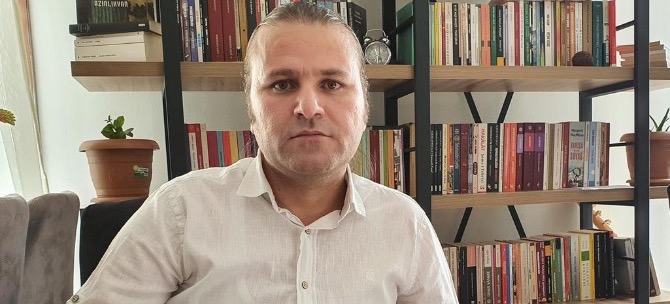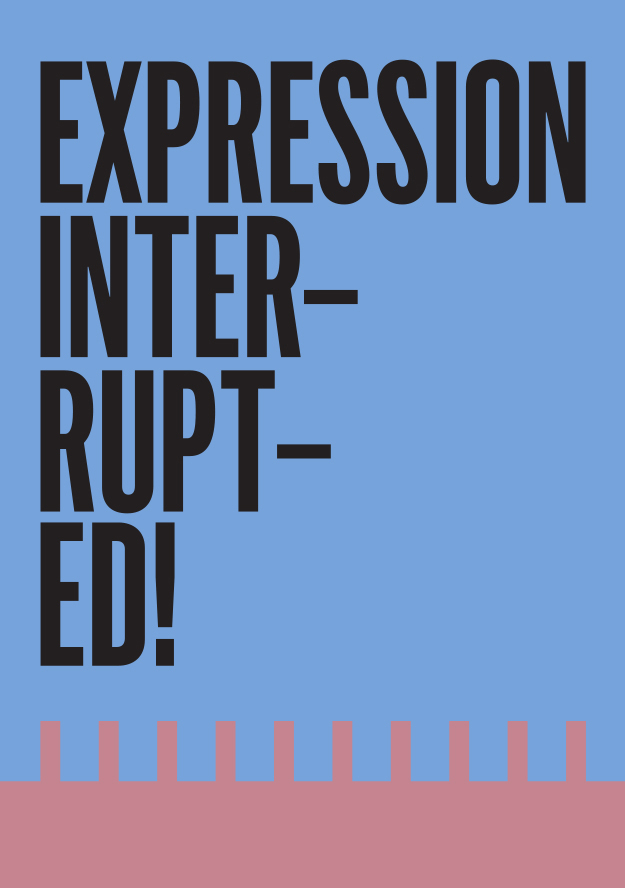Journalists and academics bear the brunt of the massive crackdown on freedom of expression in Turkey. Scores of them are currently subject to criminal investigations or behind bars. This website is dedicated to tracking the legal process against them.


The Diyarbakır Chief Public Prosecutor's Office has filed a new indictment on the charge of “membership in a terrorist organization,” requesting merger with another case opened against Gök. The indictment, accepted by the Diyarbakır 5th High Criminal Court, was merged with the case in which Gök is being tried on charges of “membership in a terrorist organization” and “terrorism propaganda”
ARDIL BATMAZ, DİYARBAKIR
The Diyarbakır Chief Public Prosecutor's Office has filed a new indictment on the charge of “membership in a terrorist organization,” requesting merger with another case opened against Gök. The two-page indictment, based on the testimony given on 18 October 2022 by the secret witness who had previously testified against many journalists under the code name “K8Ç4B3L1T5,” devoted one page to the definition of the PKK.
The witness “K8Ç4B3L1T5” defined Abdurrahman Gök's participation in statements made about detained journalists as “representing the organization,” while describing the news reports he produced after traveling to the Kobane region of Syria during the conflict there as “news reports made in line with the organization's ideology.” The indictment also included the photographing by Abdurrahman Gök of Kemal Kurkut, a university student shot dead by police during the 2017 Newroz celebrations in Diyarbakır. The witness stated, “He is the person who photographed Kemal Kurkut being neutralized by security forces during the Newroz celebrations held in Diyarbakır province in 2017,” and the witness's statements were evaluated as “ties with the organization.”
The indictment, filed with a request for merger, was accepted by the Diyarbakır 5th High Criminal Court. The court merged it with the case in which Abdurrahman Gök is tried on charges of “membership in a terrorist organization” and “terrorism propaganda.”
The hearing in Gök's trial will be held on 25 November.
He had previously testified against journalists
The İstanbul Chief Public Prosecutor's Office had opened an investigation against Mezopotamya Agency (MA) reporter Mehmet Aslan on the charge of “membership in a terrorist organization” based on the testimony of a secret witness codenamed “K8Ç4B3L1T5.”
The witness was involved in the trial of journalists Diren Yurtsever, Deniz Nazlım, Berivan Altan, Selman Güzelyüz, Hakan Yalçın, Emrullah Acar, Ceylan Şahinli, Habibe Eren, Öznur Değer, Zemo Ağgöz, and Mehmet Günhan, as well as in the case against Dicle Müftüoğlu in Diyarbakır.
“K8Ç4B3L1T5” was also a secret witness in the case in which Sedat Yılmaz, editor of the Mezopotamya Agency, was acquitted after being detained for seven months for “membership in a terrorist organization” and “establishing and leading an armed terrorist organization.”The lack of evidence to support the claims of confidential witnesses Ulaş and K8Ç4B3L1T5 was among the reasons for the acquittal.
DFG: “Proof of the state's vindictive approach”
The Dicle Fırat Journalists Association (DFG) commented on the new indictment filed against Abdurrahman Gök, saying, “It is proof of the state's vindictive approach towards our colleague.” The statement argued that with this indictment, the state was taking revenge on Abdurrahman Gök for shedding light on the killing of Kemal Kurkut, saying, "Our colleague, acting in line with the tradition of free press and with an understanding of ‘not leaving the truth in the dark,’ has achieved significant success in journalism. This success has been recognized with awards in many fields. Indictments have been filed and trials have been held against many of our colleagues based on the same secret witness. Recently, a similar indictment based on the same witness was used to file a lawsuit against journalist Mehmet Aslan, targeting our association's activities. The activities of journalists cannot be criminalized based on secret witnesses. We reiterate: Journalism is not a crime and cannot be prosecuted."
